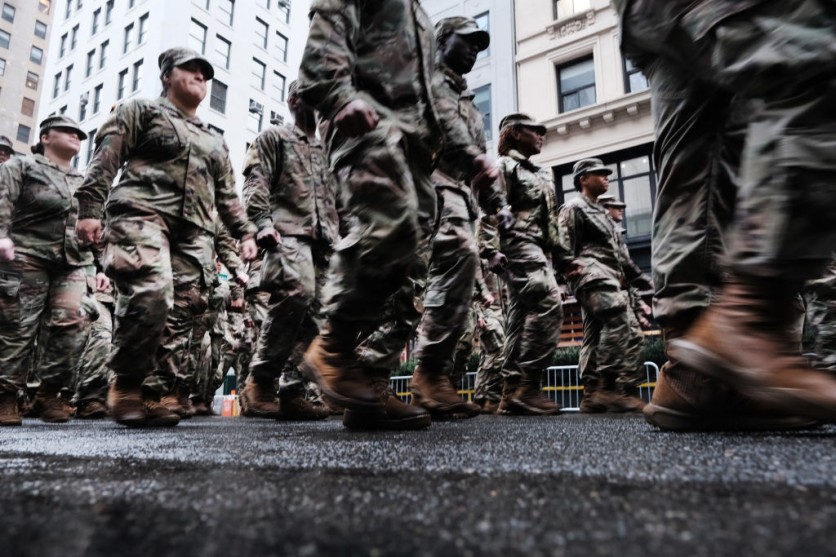A recent investigation reveals the potential efficacy of ibogaine, a naturally occurring compound derived from plants, in providing relief for military veterans suffering from traumatic brain injuries, particularly in alleviating symptoms associated with PTSD, anxiety, and depression.

Game Changer for Veterans Struggling with TBI
Stanford University researchers have delved into a groundbreaking study, revealing a potential game-changer for military veterans struggling with traumatic brain injuries (TBI). Their focus centers on ibogaine, a psychoactive compound derived from the African shrub iboga.
Interesting Engineering reported that this naturally occurring substance has shown promise in alleviating the complex challenges of PTSD, anxiety, and depression in veterans coping with the psychological aftermath of traumatic brain injuries.
The study sheds light on ibogaine's efficacy, particularly when combined with magnesium for cardiac protection. Lead author Dr. Nolan Williams, an associate professor of psychiatry and behavioral sciences at Stanford, underscores the significance of this discovery.
The compound demonstrates remarkable potential in enhancing overall functionality for veterans dealing with the multifaceted impact of TBI. This revelation is especially crucial given the limited success of conventional treatments in addressing the neuropsychiatric symptoms associated with traumatic brain injuries.
These injuries, often resulting from external forces such as blasts or collisions, trigger intricate changes in brain function and structure. Ibogaine's emergence as a potential therapeutic agent offers a new avenue of hope for veterans seeking effective solutions to navigate the challenges of TBI-related psychological trauma.
Revealing Advancements
The results were truly transformative. Across the board, veterans witnessed both immediate and enduring enhancements in their overall functionality, with significant decreases in symptoms related to PTSD, depression, and anxiety observed after undergoing the treatment.
The Disability Assessment Scale, previously indicating mild to moderate disability, now portrayed a scenario of complete restoration of functionality. Cognitive assessments unveiled advancements in concentration, information processing, memory, and a reduction in impulsivity.
The accounts from participants underscored the significant changes witnessed. Craig, a Navy veteran, revealed how he initially overlooked his struggles with traumatic brain injury (TBI) until he reached the point of forgetting his wife's name.
Following ibogaine treatment, he experienced a complete restoration of cognitive abilities, positively influencing both his work and family life. Similarly, Sean, a six-time combat deployer, shared how ibogaine seemed to dispel the metaphorical storm clouding his life.
Importantly, EurekAlert reported that the administration of ibogaine did not result in serious side effects or cardiac issues, addressing concerns associated with the compound.
Dr. Williams and his team express eagerness to delve deeper into the data, utilizing brain scans to unravel the impact of ibogaine on cognition.
As stated in its press release, they plan to initiate further investigations into TBI treatment and envision ibogaine's potential extending beyond TBI therapy, with broader applications in addressing conditions.
This independently funded study made possible through philanthropic contributions, signifies a promising turning point in the treatment landscape for veterans grappling with the hidden wounds of war.
Dr. Williams concludes optimistically, suggesting that ibogaine may indeed represent the breakthrough sought after, not only for TBI but potentially for a range of neuropsychiatric conditions.

![Apple Watch Series 10 [GPS 42mm]](https://d.techtimes.com/en/full/453899/apple-watch-series-10-gps-42mm.jpg?w=184&h=103&f=9fb3c2ea2db928c663d1d2eadbcb3e52)



